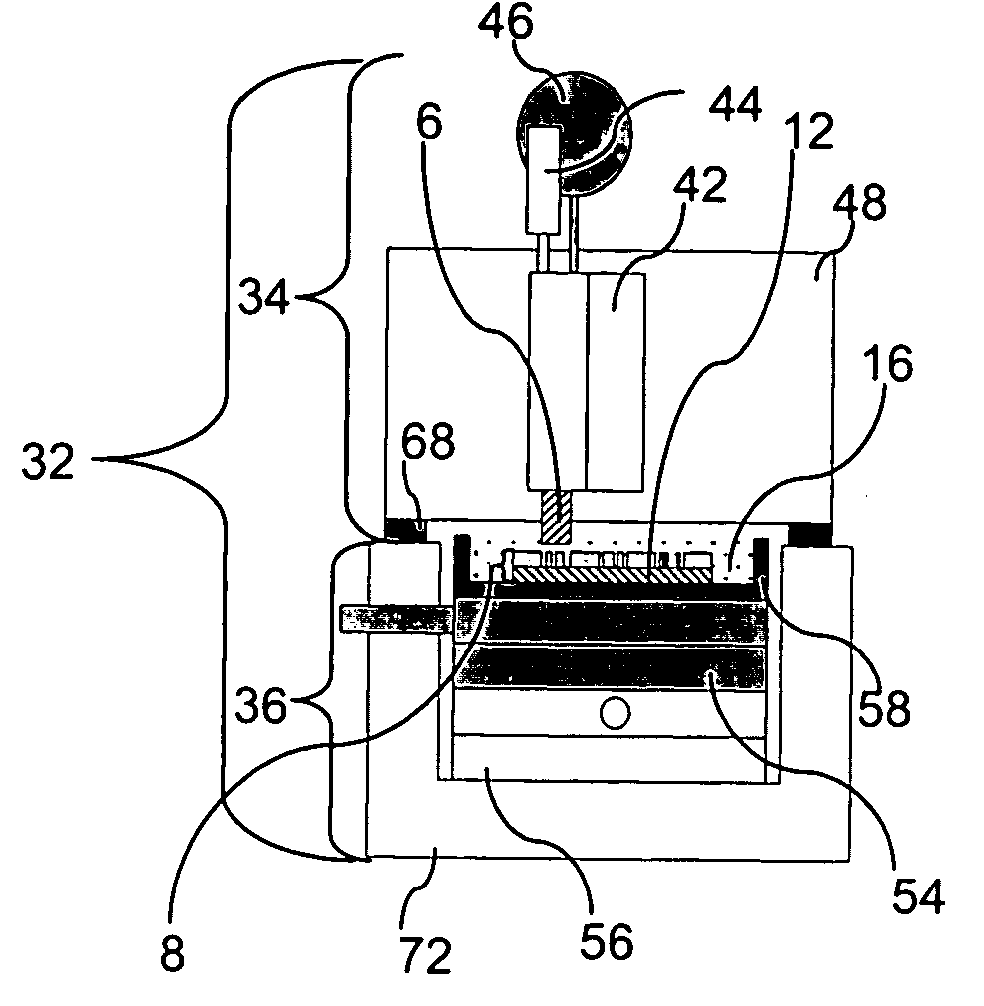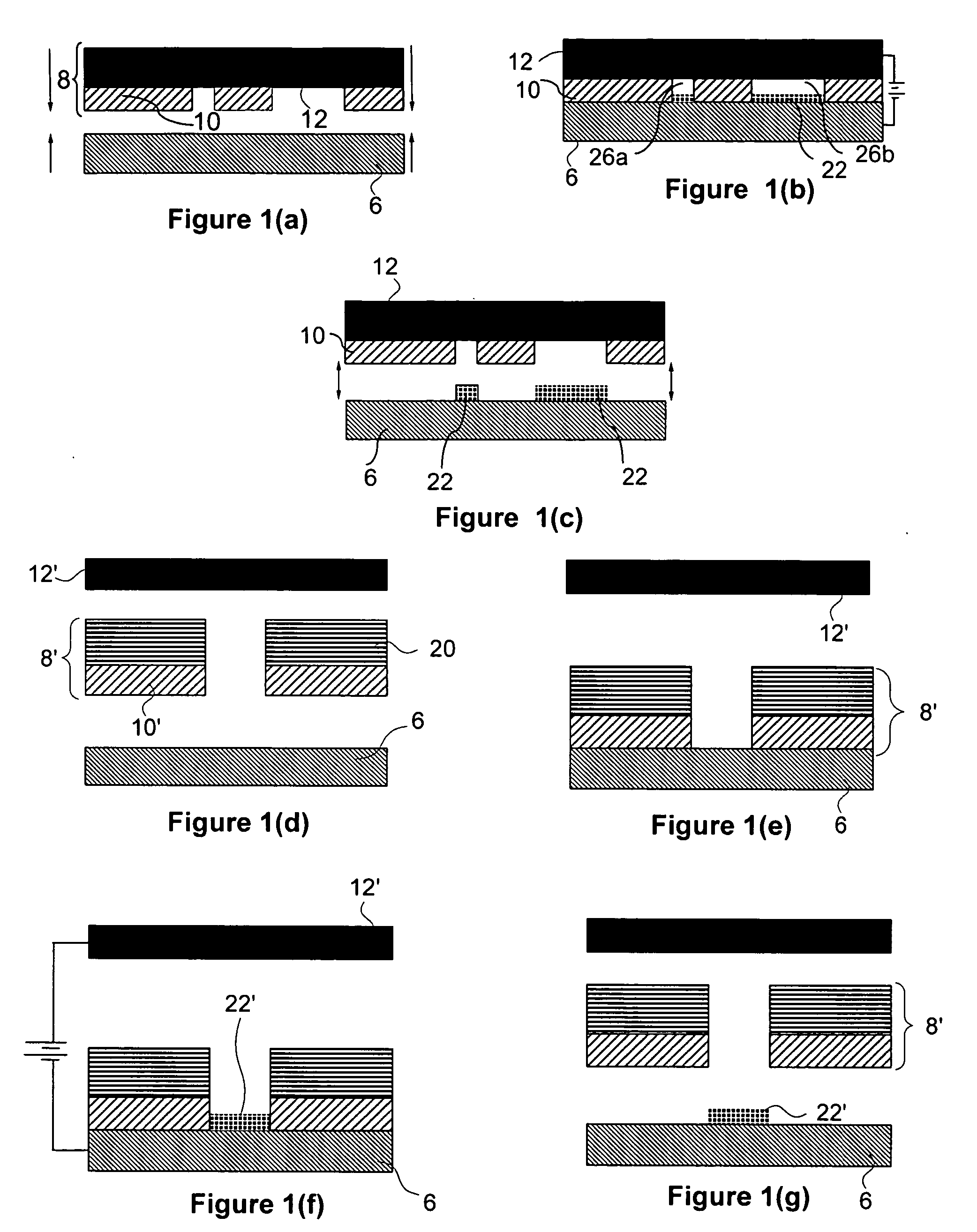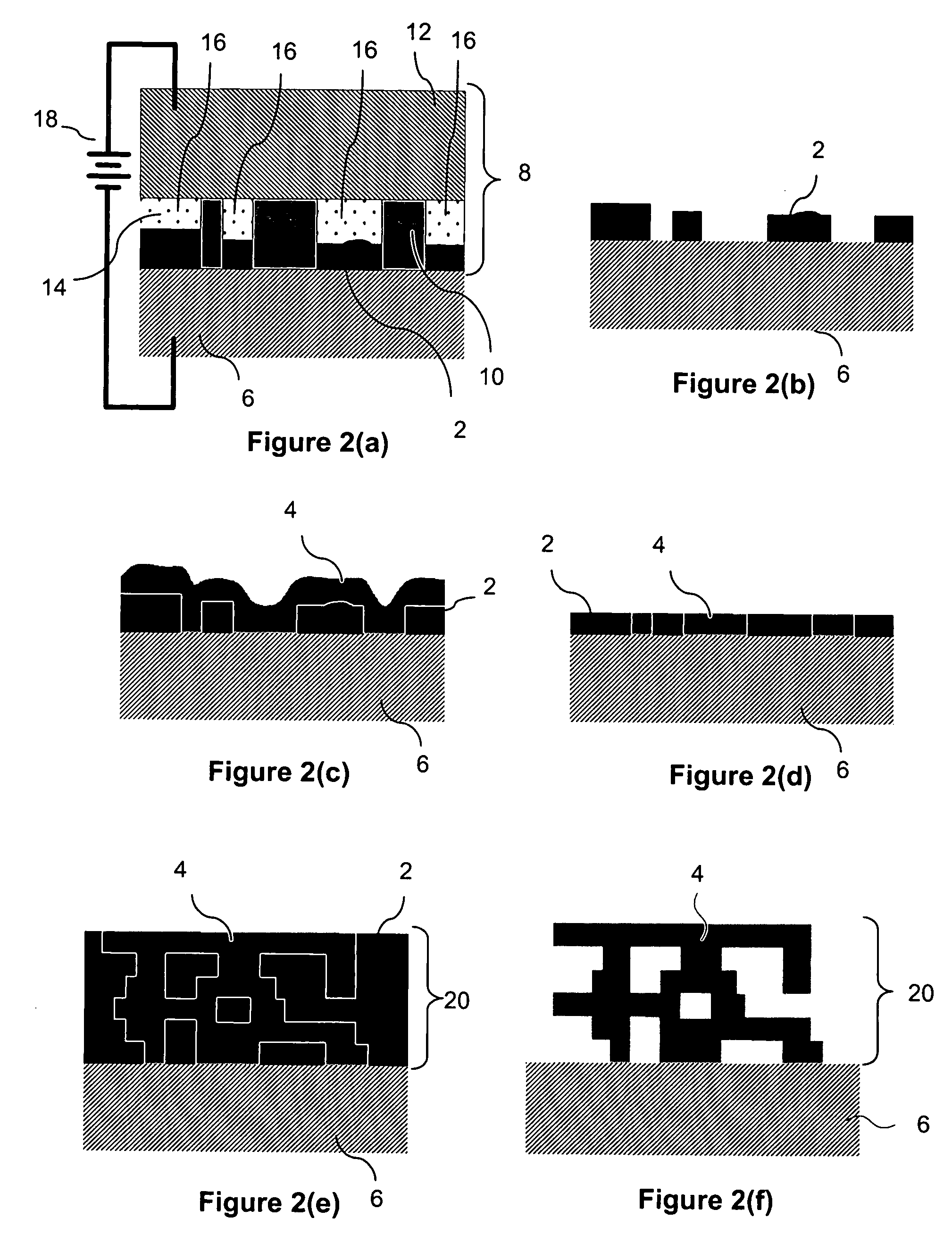Methods for electrochemically fabricating structures using adhered masks, incorporating dielectric sheets, and/or seed layers that are partially removed via planarization
a technology of electrochemical fabrication and masking material, applied in the field of three-dimensional structure formation, can solve the problem of destructive separation of masking material from the substra
- Summary
- Abstract
- Description
- Claims
- Application Information
AI Technical Summary
Benefits of technology
Problems solved by technology
Method used
Image
Examples
first embodiment
[0091]FIG. 5 provides a generalized process flowchart of the invention which forms a three-dimensional structure from a conductive material and from a dielectric material. The process of FIG. 5 begins with block 102 and then moves forward to block 104. Block 104 calls for the defining of a variable “n” to be that of the number of the current layer. It also calls for the defining of a number “N” which corresponds to a number of the final layer of the structure to be formed. After the defining of variables and parameters, the process moves forward to block 106 which calls for setting of variable “n” to a value of 1. The process then moves forward to block 108 which calls for the supplying of a substrate which may include one or more previously formed layers of material or deposits of material.
[0092] Next the process moves forward to block 112 which calls for the applying of a dielectric material onto the substrate (or previously formed layer during a second or subsequent loop through ...
second embodiment
[0116]FIG. 8 provides a generalized process flowchart of the invention which modifies a substrate by applying a conductive material and a dielectric material thereto.
[0117] The embodiment of FIG. 8 is similar to that of FIG. 5 with the exception that it calls for the formation of a single layer of material on a substrate. Operations 402, 408, 412, 414, 416, 418 and 426 correspond essentially and respectively to operations 102, 108, 112, 114, 116, 118 and 126 of FIG. 5.
third embodiment
[0118]FIG. 9 provides a generalized process flowchart of the invention which forms a three-dimensional structure from a conductive material and from a dielectric material. The embodiment of FIG. 9 is similar to that of FIG. 5 with the exception that it contemplates the possibility that some other generalized process may be used to form one or more of the layers of the structure. In FIG. 9 similar operations to those shown in FIG. 5 are indicated with equivalent reference numbers. The process of FIG. 9 and that of FIG. 5 proceed in similar manners up through operation 108 after which the process of FIG. 9 moves forward to decision block 130 where an inquiry is made as to whether or not layer “n” is to be formed using a single dielectric and a single conductive material.
[0119] If this inquiry produces a positive response the process proceeds along a path that implements elements 112-124 in a manner analogous to that of the embodiment of FIG. 5. If decision block 130 produces a negativ...
PUM
| Property | Measurement | Unit |
|---|---|---|
| dielectric constant | aaaaa | aaaaa |
| dielectric constant | aaaaa | aaaaa |
| temperature | aaaaa | aaaaa |
Abstract
Description
Claims
Application Information
 Login to View More
Login to View More - R&D
- Intellectual Property
- Life Sciences
- Materials
- Tech Scout
- Unparalleled Data Quality
- Higher Quality Content
- 60% Fewer Hallucinations
Browse by: Latest US Patents, China's latest patents, Technical Efficacy Thesaurus, Application Domain, Technology Topic, Popular Technical Reports.
© 2025 PatSnap. All rights reserved.Legal|Privacy policy|Modern Slavery Act Transparency Statement|Sitemap|About US| Contact US: help@patsnap.com



